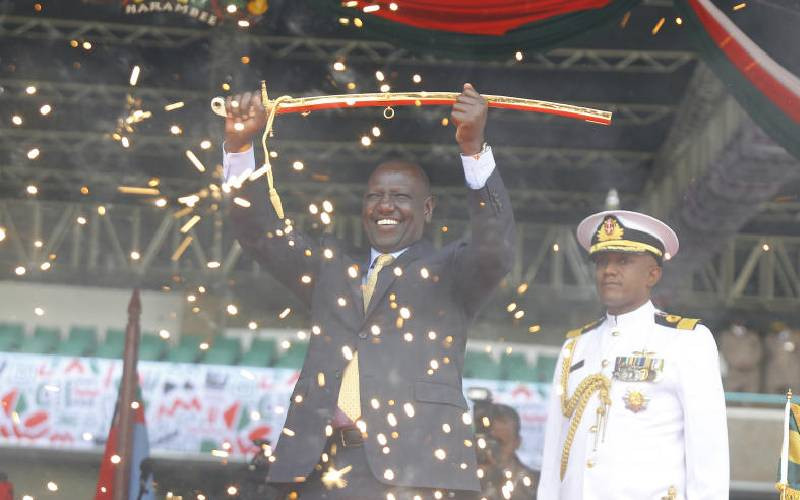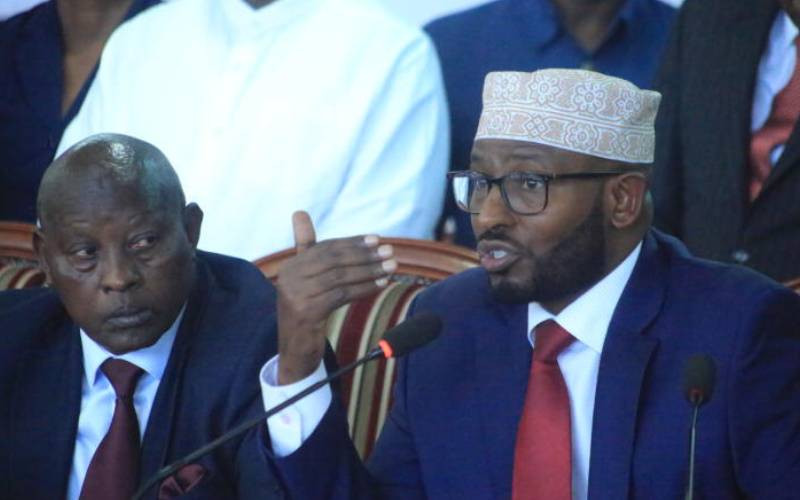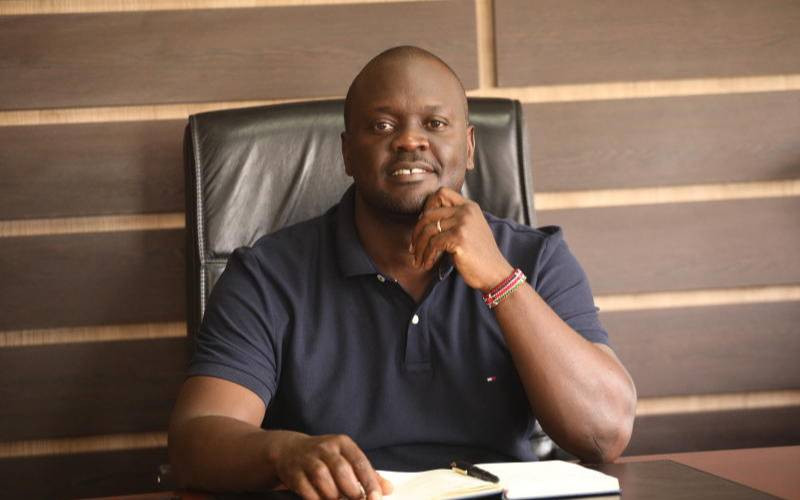President William Ruto when he received instruments of power from immediate former President Uhuru Kenyatta at Kasarani Stadium during his inauguration as the 5th President of Kenya on September 13, 2022. [Stafford Ondego, Standard]
×
The Standard e-Paper
Fearless, Trusted News







